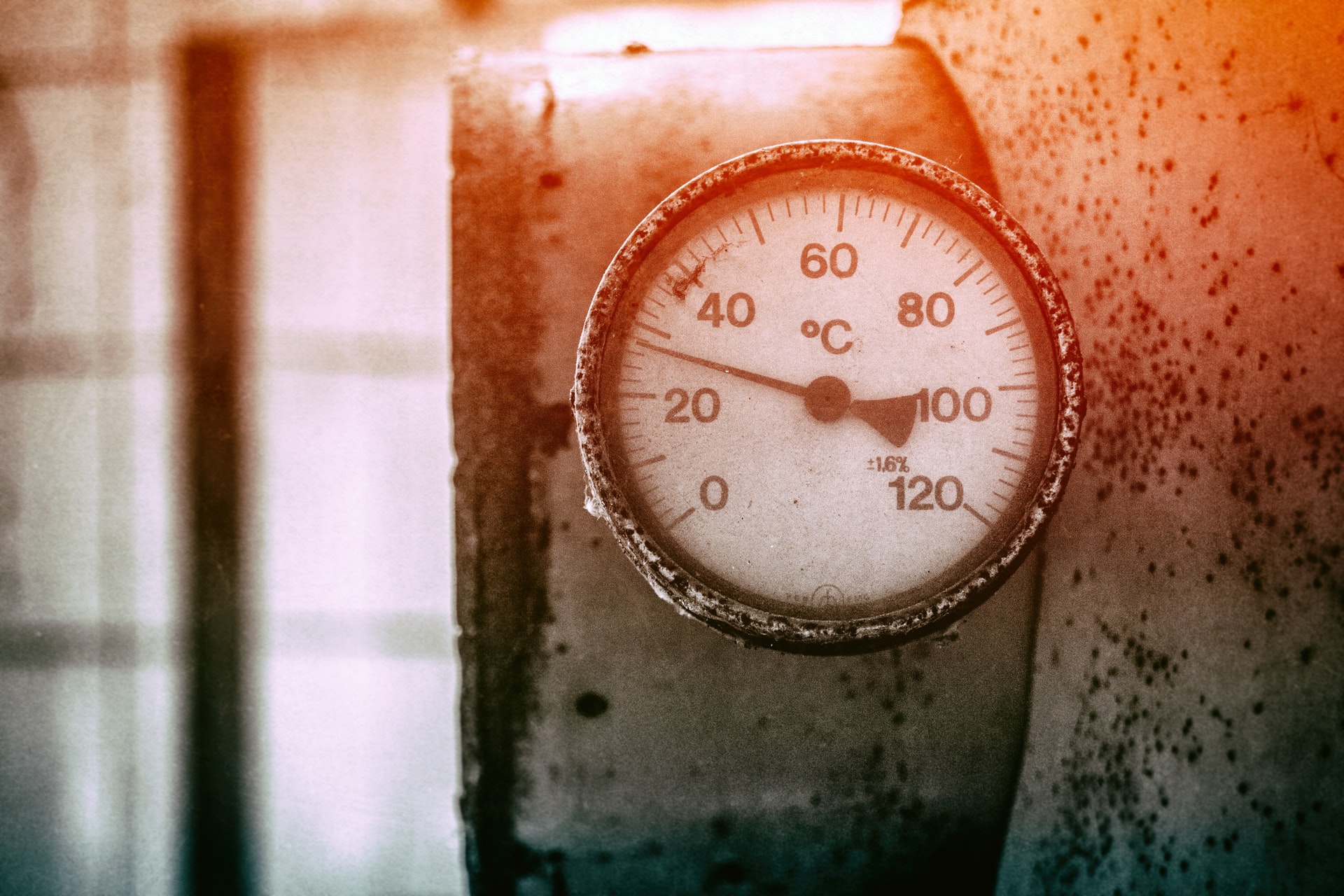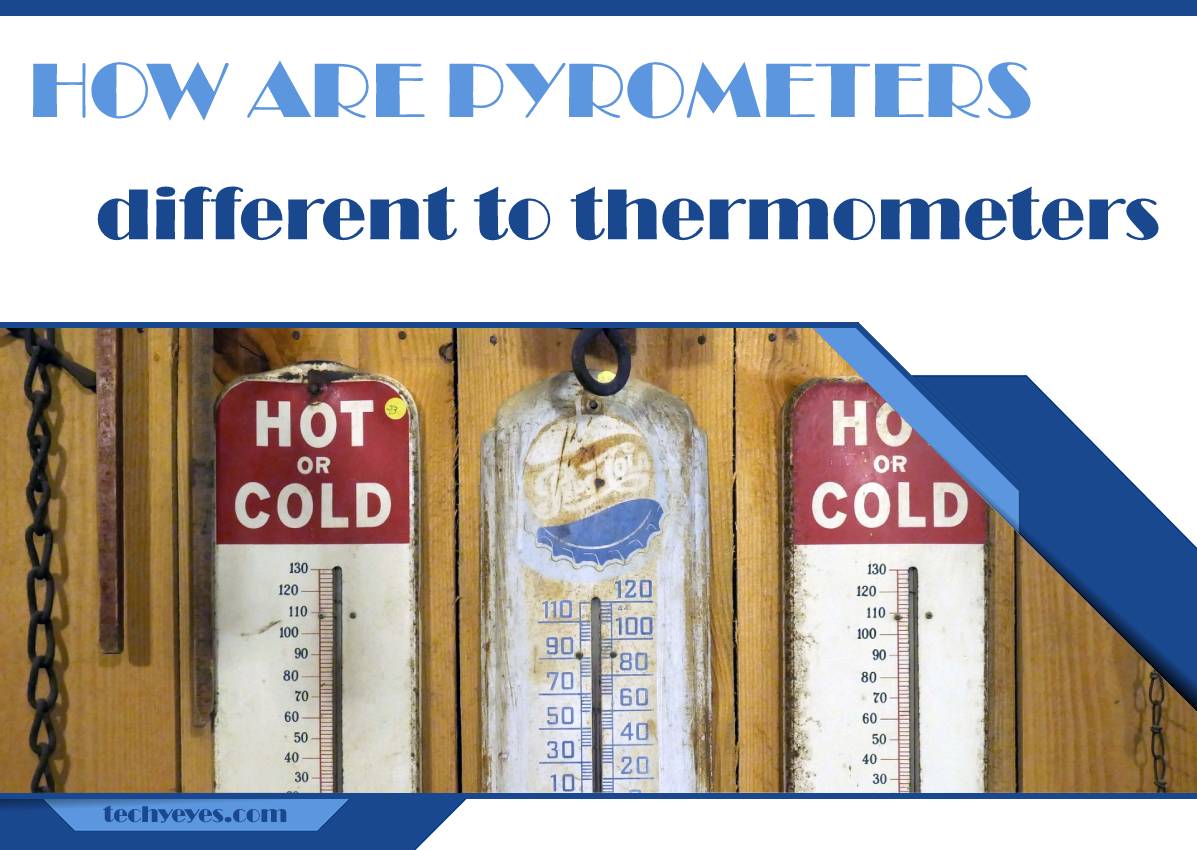Also known as pyrometers, these tools are instruments that can be used to measure high temperatures. While this might sound similar to a thermometer, there are quite a few things that set these two apparatuses apart from each other.
As such, it can be worth understanding the differences between them to ensure that you have the right tools for the job.
What Is a Pyrometer

In general, these instruments have two primary purposes; measuring high temperatures and measuring the thermal expansion of solids. Usually, these devices are made to be used remotely.
A pyrometer can often be an excellent tool for any high-temperature measurement requirements, like furnaces, boilers, and kilns (or any objects that get incredibly hot).
What Is a Thermometer

Thermometers measure temperature or a temperature gradient, using a sensor (like mercury-in-glass thermometers) and a scale to show the temperature changes.
Hot or cold, you’ll often be able to rely on a thermometer to give you the measurements you need, especially if you have a good quality one. Essentially, these are the perfect choice for general temperature measurement needs.
The Key Differences Between the Two
If you’re hoping to measure temperature, you’ll probably find a thermometer to be a good choice. For more specialist scenarios, however, you may find a pirometer to be the best option.
These devices can measure degrees far higher than those on most mercurial thermometers and allow you to do so from a distance, making it a much safer apparatus when taking measurements of incredibly high temperatures.
Of course, many professional situations may need a good quality thermometer; there are often many more situations where a thermometer will be needed than a pyrometer. The difference is that pyrometers are typically a better option for more specific purposes.
Finding the Right One for You
Whether you need a good quality pyrometer or thermometer, you’re going to want to make sure that you choose the ideal one for your needs. There are several different products out there to choose from, and even other types of pirometer that you might want to consider, like the difference between optical and radiation pyrometers, for example.
For the most part, the best thing you can do is look at the options available to you. By taking the time to do your research, you’ll often have a better understanding of what’s available and how the pirometers out there could assist you.

